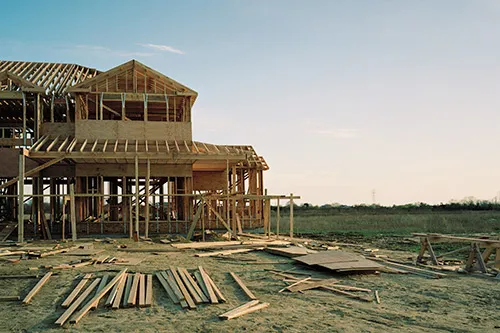Construction Insurance Ottawa ON

Looking Out for Number Four
Ottawa is the capital of Canada, and with a population of just over 1 million people, it stands as the fourth-largest city and the fourth-largest metropolitan area in the nation. As the nation’s capital, Ottawa is the political centre of the nation, home of the federal government, numerous foreign embassies and the Canadian monarchy. Infrastructure expansion and support have always been a critical part of Ottawa’s history, but the city’s future depends on contractors and builders having sufficient construction insurance in Ottawa, ON.
In the 1800s, there was much contention over which city should be Canada's capital. After many fights, Queen Victoria of England chose Ottawa, and the selection was ratified by British Parliament in 1859. Ottawa was selected primarily for its location, set on a cliff far from the United States border and believed to be more defensible from attacks. Also, Ottawa is located midway between Toronto and Montreal, making it a political compromise. Between 1859 and 1866, the original Parliament buildings were erected, the largest construction project on the continent at the time.
Ottawa’s growth has come by way of the annexation of surrounding areas. Its present area of 2,790 square kilometres is due to the amalgamation of all the nearby municipalities into a single city. This growth has powered the expansion of Ottawa’s public transit and highway systems. Within the past decade, the city has approved additional light rail lines and redevelopment of the Lansdowne Park fairgrounds, which included a new stadium, additional green spaces and commercial and residential properties. As development continues, construction companies that are insured are critical to the future of Canada’s fourth-largest city.
Exploring Construction Insurance in Ottawa, ON
Contractors and other construction professionals often work in environments with hazards such as elevated surfaces, confined spaces, heavy machinery and dangerous equipment. When considering construction insurance in Ottawa, ON, start with coverages related to project hazards:
- General Liability: This coverage addresses injuries and property damage to third parties. One example would be a member of the travelling public’s vehicle being hit by construction debris.
- Pollution Liability: You could be liable for damages if construction waste were to pollute a water system. This coverage can help.
- Professional Liability: Also known as errors and omissions or E&O coverage, this insurance protects you from claims of negligence due to mistakes and oversights in the work. It also covers lawsuits and other legal costs.
Securing Construction Insurance in Ottawa, ON, for Assets
Your policies for construction insurance in Ottawa, ON, should also cover risks associated with unfinished projects, equipment, materials and other assets that you own, both temporarily and permanently:
- Builder’s Risk: This coverage protects you from losses on ongoing projects, such as theft, vandalism or weather damage. For example, if your firm is contracted to build a new facility for the University of Ottawa, you “own” the project while it is incomplete and may therefore be responsible for any damages to it. Ownership stays with you until the project is accepted by the client.
- Commercial Auto: Similar to personal auto insurance, this covers the use of company-owned vehicles and trucks.
- Commercial Property: This insurance covers losses to your property and owned assets within.
- Equipment Floater: This covers damages to the equipment being transported between project sites.
- Inland Marine: This protects you from damages to equipment and materials being delivered to a project from a supplier.
For government contracts, contractors are often required to guarantee to meet their contractual obligations regardless of events that take place. Let's suppose your company goes out of business while working on a project. You're still on the hook to fulfill your contract. Contract surety bonds provide coverage for damages that arise from failure to meet your contractual obligations. Specific types of surety bonds include the following:
- Bid bonds: If you're awarded a contract, bid bonds help guarantee that you will enter into a contract with the owner.
- Performance bonds: Performance bonds cover you in the event that you're not able to deliver the scope of work defined in your contract or work agreement.
- Payment bonds: As a contractor, you're obligated to make payments to subcontractors, joint venture partners, suppliers and vendors.
- Maintenance bonds: Some contractors may be required to provide maintenance and upkeep on completed projects for a specific time period or contract value. Depending on the terms of a plan, these bonds may also cover warranties that the contractor is required to provide for the work.
Learn more about HUB’s construction insurance offerings!

